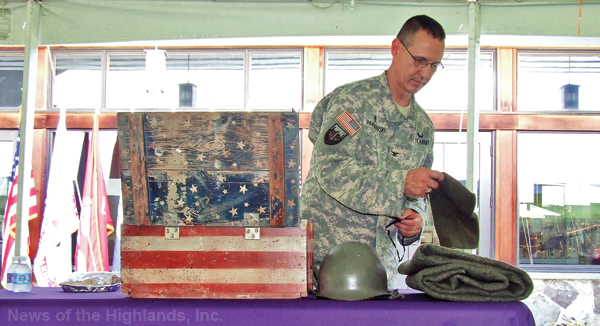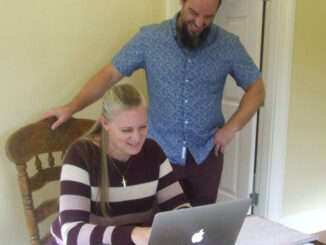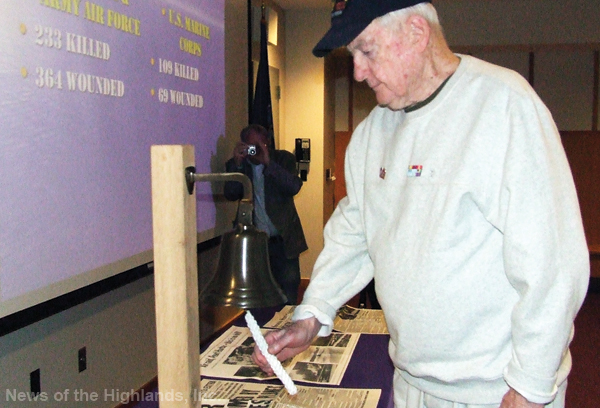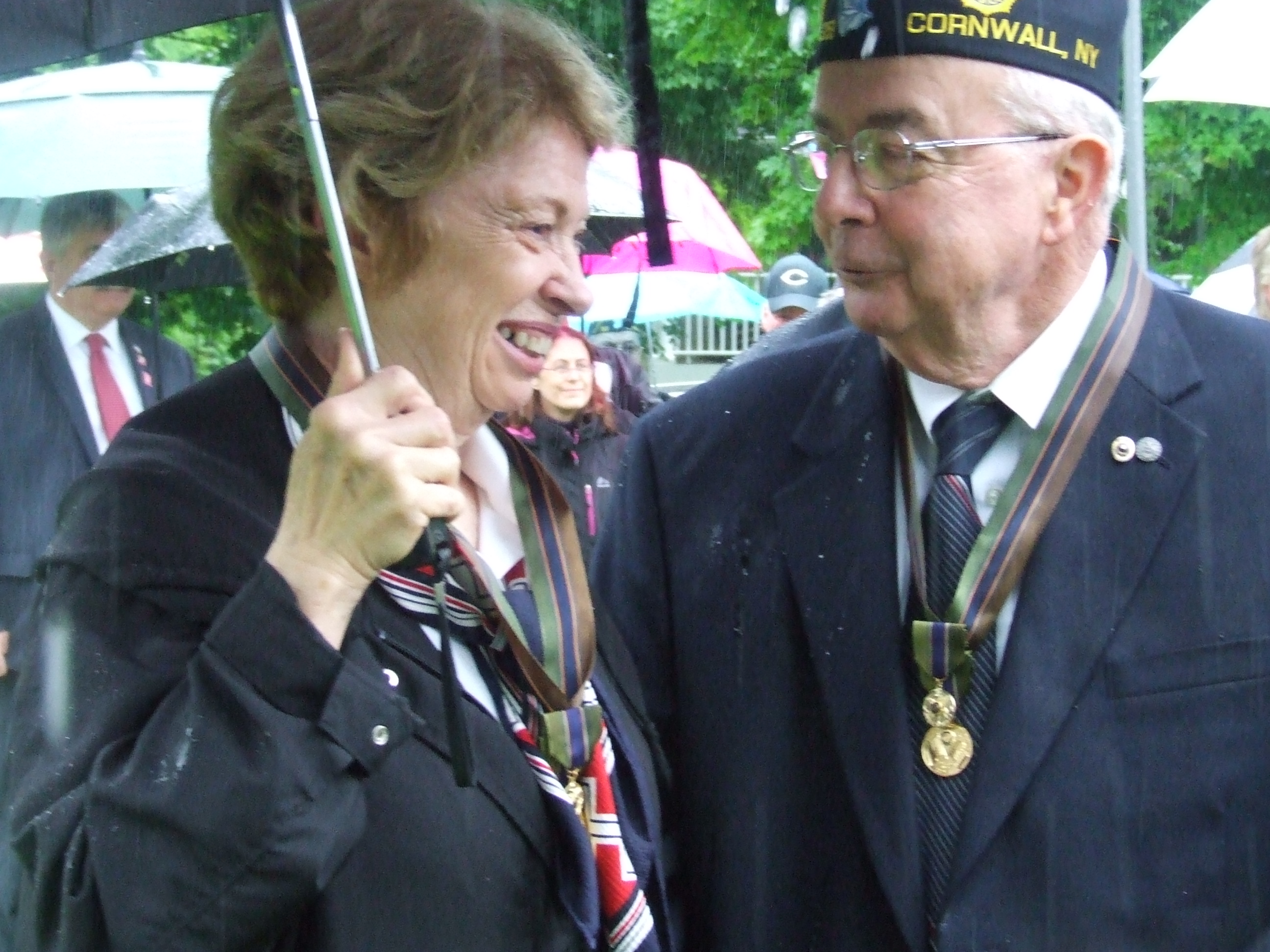
“Where you are and who you are are not terribly important,” Peter Bedrossian said on Purple Heart Appreciation Day. “It’s what happens to you.”
Every year the National Purple Heart Hall of Honor hosts a special program on the Sunday closest to Aug. 7, the date when the award was created by Gen. George Washington.
This year the annual ceremony landed on Aug. 7 and attracted 100 people (including a delegation of Combat Riders from Springfield, Vt.). Peter Bedrossian, the program director, summarized the history of the award, as he has done in the past, and then acknowledged that he’d been looking for a fresh approach to the subject.
What finally occurred to him was a tribute to non-combatants. “You don’t need to be carrying a weapon,” he said, “to be injured or killed.”
And so the Hall recognized Purple Heart recipients from each of America’s 20th and 21st century wars. Included among the honorees were a nurse, a war correspondent, a weather forecaster, a flight surgeon, and an aide who was wounded when terrorists flew a plane into the Pentagon on Sept. 11, 2001.
The keynote speaker was Father Matthew Pawlikowski — a West Point graduate, who became a priest and a chaplain after serving six years as an infantry officer. He had met Mr. Bedrossian a few weeks earlier at an event at West Point.
Father Pawlikowski spread props across a table before the start of the program. And sat in the front row until it was his turn to speak. When the organist played themes for each branch of the military, Father Pawlikowski stood with other Army veterans and with gusto sang “When the Army Goes Rolling Along.”
Once in front of the audience, he introduced his subject, Father Emil Kapaun, as a personal hero and referred to a lengthy article in the Jan. 16, 1954 edition of the “Saturday Evening Post.”
Father Pawlikowski glanced at the article once or twice at the start of his talk, but then repeated it from memory — using the props to re-enact parts of the narrative.
The late Father Kapaun served in World War II and Korea. “His parish was the front line,” the article said. He often risked his life to retrieve wounded soldiers from the battlefield. Once he was so close to enemy fire that his pipe was shot out of his mouth.
He was captured by the enemy, and ministered to the other prisoners of war — stealing food for them and risking execution to hold a religious service at Easter. Because of his actions, the death rate at his camp was 10 times lower than anywhere else.
“Where ever he stood,” a co-prisoner said, “was holy ground. He could transform a hut into a cathedral.”
Father Kapaun died in captivity on May 23, 1951. He is a candidate for sainthood, the guest speaker said, and a recipient of the Medal of Honor — the highest spiritual and secular honors a person can receive.
Did you know? In the early days of the American Revolution, Gen. Washington recognized bravery with a promotion and a raise to a higher pay grade. The Continental Congress couldn’t afford the salary increases, so Gen. Washington created the Badge of Military Merit instead.



